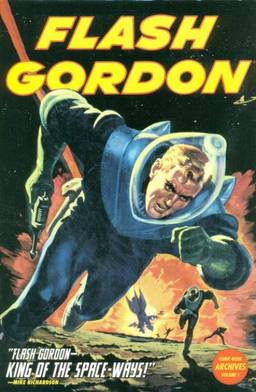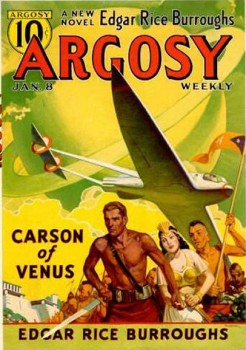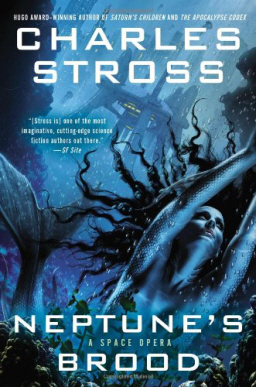What Would it Look Like to Pull a Watchmen on Planetary Romance? Part III
 When we last left our intrepid blogger (me) two weeks ago and four weeks ago, he was blogging (very roughly) about the superhero genre, pre- and post-Watchmen, and the kind of light that Alan Moore’s Watchmen shone onto superhero comics, as well as the core elements of the planetary romance form. I was setting up this conversation about what a Watchmen-like treatment of planetary romance would look like, both the pretty parts and the ugly ones.
When we last left our intrepid blogger (me) two weeks ago and four weeks ago, he was blogging (very roughly) about the superhero genre, pre- and post-Watchmen, and the kind of light that Alan Moore’s Watchmen shone onto superhero comics, as well as the core elements of the planetary romance form. I was setting up this conversation about what a Watchmen-like treatment of planetary romance would look like, both the pretty parts and the ugly ones.
This is a fun exercise and it’s quite possible that I’m way off in what I construct next, so if I am, please offer up your ideas, views, suggestions. Debate is good!
And, I’ve been ending on a cliffhanger, like any good pulp. So now, here’s Part III, What a Watchmen Treatment of Planetary Romance Might Look Like….
We’ll need a hero, a youngish white male paragon to travel to another world, because that’s the core of the form. And let’s have the aliens of this world be as close to humans as possible in physique and psychology, otherwise other assumptions become much harder to play with.
While Carson traveled to Venus, Carter to Barsoom, and Rogers to the future by themselves, we may need companions for the hero, like Flash Gordon did. And for later grist for the dramatic mill, it will probably serve us that one is a strong, well-characterized, complex woman, preferably from another political viewpoint or culture.

